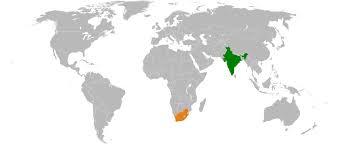The WTO has struggled to remain relevant as global technology and trade issues evolve from where they were in the 1980s. Part of the challenge flows from the widely divergent interests of a growing membership (currently 164 countries) which coupled with the consensus principle for decision making means any Member can shut down or prevent progress. Part flows from the failure/inability to update commitments based on changing stages of economic development and share of global trade. Part flows from the increased importance of Members whose economic systems are not market-premised under rules which assume such a market orientation. Part flows from the effort of some to seek new rights through dispute settlement and by ineffective controls to prevent excesses by the panels and Appellate Body system adopted in 1994. Part flows from the crises of the COVID-19 pandemic and climate change and the glacier pace of deliberations within the WTO.
All of these forces have led WTO Members to focus energies on bilateral and plurilateral trade agreements and to start a process of so-called Joint Statement Initiatives to let countries desiring to address new or uncovered issues do so.
With the WTO finally having appointed a new Director-General whose priorities include addressing longstanding issues, but also achieving progress on the Joint Statement Initiatives — including digital trade/e-commerce and others — and with the European Union’s 18 February trade policy paper and Annex dealing with WTO reform and indicating the importance of flexibility for bringing open plurilaterals into the WTO, India and South Africa have filed a communication for discussion at the March 1-2, 2021 General Council meeting challenging the “legal status of Joint Statement Initiatives and their negotiated outcomes”. The Indian and South African paper is embedded below.
The paper from India and South Africa raises interesting points about existing WTO provisions for modifications of existing agreements and for adding plurilateral agreements and other issues. But the real question for the WTO is whether updating of rules and coverage of technological change and global developments will happen within or outside of the WTO. No issue describes this better than digital trade. Existing WTO rules don’t really address digital trade which has become increasingly important for all countries. While the WTO has had digital trade on its radar since 1998, there has been no meaningful progress within the WTO on multilateral rules. The Joint Statement Initiative on digital trade started in Buenos Aires in late 2017 is an effort by some WTO Members to develop rules for those willing to participate that address important issues affecting digital trade today. The JSI on e-commerce presently has 86 WTO Members participating in the negotiations and is making progress towards potential results as early as the 12th WTO Ministerial Conference in late 2021. Embedded below is the 2017 Joint Statement Initiative, the December 2020 Joint Statement on E-Commerce and the December draft text.
Conclusion
The paper from India and South Africa may reflect a desire to have an early discussion of what additional flexibilities are needed in the WTO to permit easier inclusion of plurilateral agreements within the WTO. The paper could also be an effort to add leverage to obtaining focus on issues of importance to India and South Africa. It could also be a signal that two Members who historically have had problems with many liberalization efforts are simply looking to lock the WTO down from timely reform and rule updates at least among the willing. If so, the WTO’s drift to irrelevance will continue and solutions outside of the WTO will become the main focus of global trade rules.
Terence Stewart, former Managing Partner, Law Offices of Stewart and Stewart, and author of the blog, Current Thoughts on Trade.
To view the original blog post, please click here.

